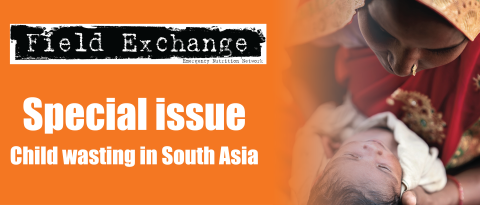Growth faltering in early infancy: highlights from a two-day scientific consultation
Report summary1
Growth faltering among babies less than six months of age remains a significant concern in India which has not so far received adequate attention from a prevention, timely detection and management perspective. A two-day consultation on the subject was thus organised in October 2018 to examine the data and evidence on the identification and management of early growth failure and to identify knowledge gaps and future areas of research. The meeting, organised by the Biotechnology Industry Research Assistance Council, the Indian Academy of Pediatrics, Vardhman Mahavir Medical College and Safdarjung Hospital and the Society for Applied Studies, was held in India. It highlighted both major areas of consensus and areas that require more action and further research.
Discussions around the epidemiology of growth failure in early infancy highlighted that this is an important area due to the high risk of mortality and morbidity in this age group. There is a lack of evidence to reach consensus around the best choice of indicators to use to help with the early identification, management and monitoring of growth faltering in community settings. Studies suggest that weight-for-age z-score (WAZ) may be the best predictor of mortality among infants less than six months of age, the use of which could operationally simplify community-level assessment. Discussions regarding guidelines and current practices for the management of growth failure in early infancy focused on severe acute malnutrition (SAM) due to its association with a high risk of mortality. However, these guidelines lack evidence on the specific management of very young patients and are poorly implemented in the Indian context. Evidence is needed to foster effective lactation support for young infants and for assessing, where needed, effective and safe alternatives to breastfeeding. The feasibility, impact and cost-effectiveness of community-based management for uncomplicated cases among infants less than six months of age should be explored in trials and tested for the potential to scale up into existing delivery systems.
Optimal breastfeeding practices were identified by the group as central to preventing growth failure among infants less than six months of age. These must be supported by effective counselling services for mothers. Catch-up growth has been shown to reduce mortality and morbidity outcomes in the short term and neurodevelopment in later life. Available evidence points towards the need to prioritise the first two to four months of age as the window of opportunity for maximising catch-up growth in pre-term and small for gestational age babies. The consultation recommended a focus on prevention to promote the survival, growth and development of low birth weight babies, taking into account the importance of the nutrition and health of the mothers. Integrated community-based efforts are needed to tackle underlying causes of undernutrition including early childbearing, poor sanitation, poverty and parental education. A reorganisation of the health system to facilitate the continuum of care from facility births through to follow up at home was recommended, with comprehensive models for the care of small and sick newborns extending beyond the neonatal period required. Models incorporating interventions such as a no separation policy of mothers and newborns and Kangaroo Mother Care with co-delivery of postnatal and early newborn care should be tested for scale up in programme settings.
1 Aneja S, Kumar P, Choudhary TS, et al. Growth faltering in early infancy: highlights from a two-day scientific consultation. BMC Proc. 2020;14(Suppl 12):12. Published 2020 Sep 15. doi:10.1186/s12919-020-00195-z


